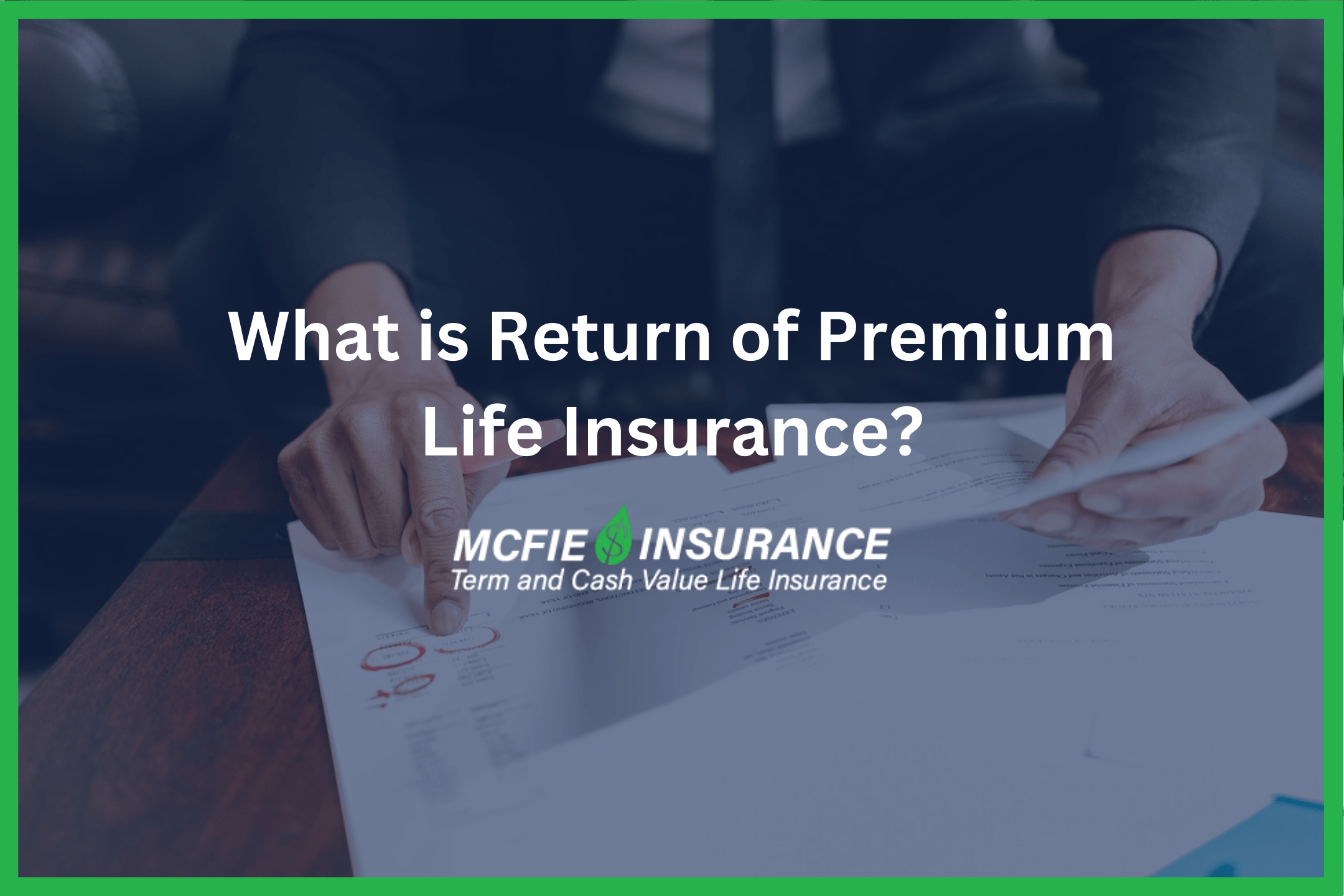702-660-7000
702-660-7000

A return of premium life insurance policy is a type of term insurance where all the premiums you pay during the term are refunded if you outlive the policy. If you die during the term, the death benefit will be paid out to the beneficiaries as normal. While this policy may seem appealing upfront, there is a catch. Let’s dive into how the policy works, the pros and cons, and alternatives to consider before purchasing this type of policy.
Return of premium term life insurance or ROP insurance differs slightly from a traditional term life insurance policy. While both policies cover a set term, where they differ is what happens to the premiums. In a traditional term life insurance policy, there is a high probability that you will pay premiums for years without dying to initiate the death benefit. With a return of premium life insurance policy, policyholders are somewhat more protected because this type of policy will refund the premiums if you outlive the term.
Here’s a simple explanation of how a return of premium term life insurance policy would work:
Note: With most ROP policies, the policyholder will only be refunded premiums if they pay all of the premiums and do not cancel the policy during its term.
Up until this point, you might be wondering why anyone looking into life insurance wouldn’t get this type of policy because of its “money-back guarantee” setup. Well, here’s the kicker. The average cost of return of premium life insurance is always more expensive* than a traditional level-term life insurance policy. This is because the insurance companies know they’re taking a risk whether the insured lives or dies. Either they’ll have to pay back some, or all, of the premiums if the policyholder outlives the policy, or they’ll have to pay the death benefit if the policyholder passes during the term. So, they make the policyholder pay for the extra risk.
For many people, in the end, the cons of return of premium life insurance outweigh the pros. Here are the main pros and cons to consider:
Because of all the cons, we find that most people prefer to avoid a return of premium life insurance policy. While you might get your premiums back if you outlive your policy, the money used to pay them isn’t really working for you. It is depreciating and inaccessible for many years. If you’re looking for coverage that provides guarantees and works to help you, your family, and your financial goals, we have some potentially better alternatives.

Understanding the Infinite Banking Concept and How It Works In Our Modern Environment 31-page eBook from McFie Insurance Order here>
The main reason many people choose to purchase life insurance is to protect their loved ones. But, life insurance can’t also be a valuable tool during your life. Here are two alternatives to return of premium life insurance that offer great benefits:
If you’re looking for a term life insurance policy, a level-term policy might be a better option than return of premium life insurance. Level-term contracts are renewable but the time between renewing is pushed several years into the future instead of being annually renewable. The resulting “level-period” might be 10, 15, 20, or 30 years from the time the contract is first initiated. While the premiums may initially be more than other term life contracts like one-year renewable term insurance, they will be less than premiums for a comparable return of premium term life insurance policy. If the policy is a convertible term policy, there’s also the option to convert your level-term insurance into a permanent life policy before the end of the level term period.
This type of life insurance takes the pros of return of premium life insurance and adds to them while eliminating some of the cons. Participating whole life is permanent life insurance that covers you for your entire life, with guaranteed cash value and death benefit as prominent components in the policy. It also is available to use during your lifetime through the accumulation of cash value. Unlike return of premium life insurance where your money is inaccessible and depreciating over time, cash value in a participating whole life insurance policy grows every year, guaranteed, and can be leveraged via policy loan for a variety of life expenses such as college tuition, mortgages, new business expenses and more. This is why it’s often viewed as life insurance that pays you back. Cash value in a whole life insurance policy accumulates over time as equity and is tax-deferred. Participating whole life insurance also has a “return of premium” feature included in the form of non-guaranteed dividends which can add to cash value accumulations beyond the guarantees. These are the reasons well-designed participating whole life insurance is our recommended alternative to return of premium life insurance.
There’s a lot of information and choices out there when it comes to purchasing a well-designed life insurance policy. At McFie Insurance, we want to provide you with all the information you need to make the best decision for you, your family, and your financial future. Schedule a strategy session with us today to talk through your options. We’re here to help!
 by Gracine McFie
by Gracine McFie
There are many ways to access information about finances, but it can be hard to determine which sources are trustworthy. I like to put information together in an accurate, straightforward, easy to understand manner so people can make good financial decisions based on the information provided without having to waste time wondering if the source is reliable.